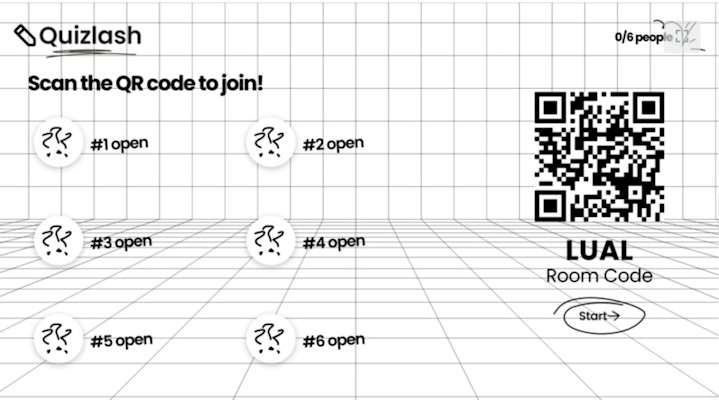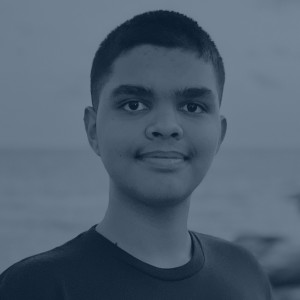Faris Ashai, 20

Faris Ashai has a talent for coding and a drive to create new opportunities for the hacker community. Whether working alongside his teammates in hackathons or organizing a brand-new event, he embodies the hacker community’s collaborative spirit.
Faris grew up immersed in novel technology. His first introduction to tech was through gaming consoles and portable devices (he still owns his first-generation iPad). His first coding experience was in 8th grade, using GameMaker to create video games in class. He saw the rewards of creating something from scratch and putting puzzle pieces together to complete projects. His interest in coding has only grown since then.
Faris’s love of project-based learning was a perfect fit for hackathons. Though he knew computer science was his passion when he started college, he was unsure how to practically apply his skills. His cousin suggested hackathons as a unique and engaging event to work on hacking with a team, so he joined his first event, HolidayHacks, in December 2020. Even though he and his team had no practical experience with web development, they rallied together to create a functioning project. He says, “I found the experience very rewarding, to see that I could create something visible for people on the Internet to interact with, and became further motivated to do more serious projects in the future and compete in additional hackathons.”
His interest in coding flourished in his second year as he joined more hackathons and branched out into new technologies. In his second hackathon—SDHacks 2021—he discovered React, which he used to build more dynamic front-end projects. React was a springboard for Faris, giving him a space to apply his skills and broaden his coding knowledge.
Competing in hackathons was exciting, but Faris wanted more. He saw that hackathons can have a crucial impact on budding programmers, so he moved into organizing them. He joined the organizing team of a new event called TritonHacks, aimed at high schoolers and specifically underprivileged students. The next year, Faris stepped into the role of director. He focused on supporting new coders by supplying participants with high-quality starter kits. Even if coders attended TritonHacks with no experience, Faris says, “they still feel the rewarding experience of completing a project.” Faris also pushed mentorship as a primary focus, aiming to give underrepresented hackers a place to thrive through tutoring and individual tech support. He says his goal at TritonHacks is “to help provide disadvantaged communities with the same opportunities and representation in STEM fields.” Each participant is assigned a mentor, regardless of skill level, and they can instantly feel like part of a community.
Faris overcame many obstacles in his leadership of TritonHacks, including self-doubt, lack of experience, financial issues with sponsors, and internal team issues. However, stayed focused on his mission: giving students, particularly high schoolers, a safe place to code and learn as much as possible.
Hackathons are more than just engaging eventsFaris believes they can alter hackers’ lives. He says, “I knew [TritonHacks] had the potential to completely change the career trajectory of some of these students if they came away from the experience with new skills and enjoyed it enough to come back again.” He knows that TritonHacks will inspire many students to learn more about computer science, and will create positive changes in their lives, because when he joined the hacker community, he says, “that’s exactly what happened to me.”
Quick Facts

Faris Ashai, 20

Faris Ashai has a talent for coding and a drive to create new opportunities for the hacker community. Whether working alongside his teammates in hackathons or organizing a brand-new event, he embodies the hacker community’s collaborative spirit.
Faris grew up immersed in novel technology. His first introduction to tech was through gaming consoles and portable devices (he still owns his first-generation iPad). His first coding experience was in 8th grade, using GameMaker to create video games in class. He saw the rewards of creating something from scratch and putting puzzle pieces together to complete projects. His interest in coding has only grown since then.
Faris’s love of project-based learning was a perfect fit for hackathons. Though he knew computer science was his passion when he started college, he was unsure how to practically apply his skills. His cousin suggested hackathons as a unique and engaging event to work on hacking with a team, so he joined his first event, HolidayHacks, in December 2020. Even though he and his team had no practical experience with web development, they rallied together to create a functioning project. He says, “I found the experience very rewarding, to see that I could create something visible for people on the Internet to interact with, and became further motivated to do more serious projects in the future and compete in additional hackathons.”
His interest in coding flourished in his second year as he joined more hackathons and branched out into new technologies. In his second hackathon—SDHacks 2021—he discovered React, which he used to build more dynamic front-end projects. React was a springboard for Faris, giving him a space to apply his skills and broaden his coding knowledge.
Competing in hackathons was exciting, but Faris wanted more. He saw that hackathons can have a crucial impact on budding programmers, so he moved into organizing them. He joined the organizing team of a new event called TritonHacks, aimed at high schoolers and specifically underprivileged students. The next year, Faris stepped into the role of director. He focused on supporting new coders by supplying participants with high-quality starter kits. Even if coders attended TritonHacks with no experience, Faris says, “they still feel the rewarding experience of completing a project.” Faris also pushed mentorship as a primary focus, aiming to give underrepresented hackers a place to thrive through tutoring and individual tech support. He says his goal at TritonHacks is “to help provide disadvantaged communities with the same opportunities and representation in STEM fields.” Each participant is assigned a mentor, regardless of skill level, and they can instantly feel like part of a community.
Faris overcame many obstacles in his leadership of TritonHacks, including self-doubt, lack of experience, financial issues with sponsors, and internal team issues. However, stayed focused on his mission: giving students, particularly high schoolers, a safe place to code and learn as much as possible.
Hackathons are more than just engaging eventsFaris believes they can alter hackers’ lives. He says, “I knew [TritonHacks] had the potential to completely change the career trajectory of some of these students if they came away from the experience with new skills and enjoyed it enough to come back again.” He knows that TritonHacks will inspire many students to learn more about computer science, and will create positive changes in their lives, because when he joined the hacker community, he says, “that’s exactly what happened to me.”
Quick Facts




